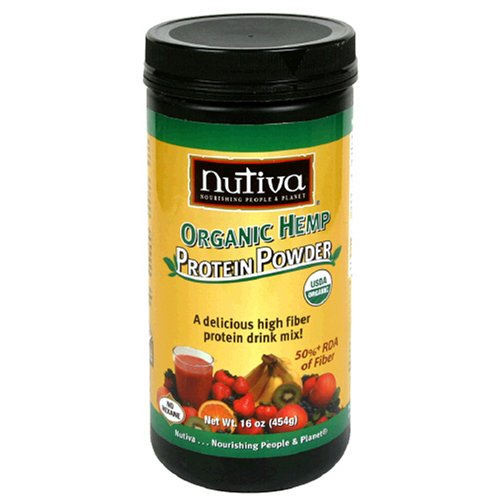A lot of athletes and people in general believe they require excessive amounts of protein. In reality, too much protein can actually harm your body and will ultimately become waste in your urine. On the other hand, protein aides in many important body functions. Listed below is the recommendations according to the RDA guidelines.
- Consists of Branched Chain Amino Acid chains, which our bodies cannot make
- Essential for building muscle, repairing muscle, and maintaining muscle
- Needed to make red blood cells, increase immune function, hormonal balance
- Important in maintaining healthy hair, nails, and skin
- Aides in weight loss and weight management
The Cons of too much Protein
- Too much protein can mean high fat
- eat less animal fat and coconut, palm, and kernal oils
- The Atkins Diet contains 53% fat and nearly 20% of that is saturated
- Too much protein can mean low fiber
- increasing risk of cancer, diabetes, heart disease, and obesity
- Can cause a lack of phytochemicals, vitamins and minerals
- Potential for increased bone loss and low bone density
- The body can only process and digest so much at a time, and an overabundance is excreted in urine, stored as fat, or used for energy.
- When the body processes high amounts of protein, it can tax the liver and kidneys, leading to health problems down the road.
- Can lead to increased calcium deposits in the blood, which can lead to kidney stones.
PROTEIN FOR ATHLETES
Protein is used as a source of energy for athletes. Whether the athlete is growing, increasing muscle mass, doing endurance training, or dieting, the requirements will vary. In most cases, the protein requirements for athletes is higher than the average person.
The recommended daily allowance for endurance athletes: 1.2-1.4 grams per kilogram of body weight per day.
The recommended daily allowance for strength training athletes: 1.4-1.8 grams per kilogram of body weight per day.
PROTEIN FOR WOMEN
.8 grams per kilogram of body weight
example: 150 pound female, 150 / 2.2 kg x .8 = about 55 grams of protein a day
PROTEIN FOR MEN
.8 grams per kilogram of body weight
example: 190 pound male, 190 / 2.2 kg x .8 = about 69 grams of protein a day
PROTEIN FOR CHILDREN
Ages 2-3: Based on 1000 Calorie diet, 5-20% protein/13-50 grams
Ages 4-8: Based on 1200-2000 Calories, 10-30% protein/30-90 grams
Ages 9-13: Based on 1600-2200 Calories, 10-30% protein/40-120 grams
Ages 14-18: Based on 1800-3200 Calories, 10-30% protein/45-135 grams
Protein Powder
- Whey
- Made from the globular proteins isolated from whey, a by-product of cheese from cow's milk.
- Popular in bodybuilding since it is soluble and easily digested.
- Most commonly used post workout sessions to increase amino acids in the blood used to by the muscles to build mass.
- Aides to build and repair muscle tissue.
- Increases blood flow during exercise.
- Two types:
- Isolate: 90% pure protein, low in fat, carbohydrates, more expensive
- Concentrate : 75% protein, high in fat and lactose, cheaper.
- Not a lot of cash to spend? Opt for Whey Blend, a great mix of the two.

- Hemp
- Increasing in popularity among athletes due to its high protein and low fat content.
- A complete protein and high in dietary fiber.
- Studies have shown it increases metabolism, enhances energy levels, lowers cholesterol, increases immunity, and reduces food cravings.

- Soy
- Low in fat, low in carbohydrates.
- High in antioxidants.
- Complete protein.
- May cause upset stomach.
- Difficult to stir into a drink/smoothie.
- Taste is not very good, bean flavor.
- May not help muscle recovery as well as other protein sources.
- Rice
- High in dietary fiber.
- Complete protein, containing all amino acids.
- Hypoallergenic, causing fewer allergies such as soy, wheat, milk, etc.
- The body utilizes rice protein more than soy.
- Not as effective as building muscle.

My Recommendations:
- Consume adequate amounts of protein from plant sources that are low in fat such as legumes, lentils, nuts, beans, tofu, edamame and whole grains.
- When it comes to animal protein, I recommend fish and eggs.
- If you eat meat, consume lean poultry and lean red meat.
~ A 6 ounce steak is approximately 38 grams of protein, 44 grams of fat, with about 16 grams of saturated fat, almost three-fourths the recommended daily intake for saturated fat.
~ The same size piece of salmon gives 35 grams of protein and 18 grams of fat, with 4 being saturated.
~ A cup of cooked lentils has approximately 18 grams of fiber and less than 1 gram of fat.

Why I say NO to the Atkins Diet and all No/Low-Carb Diets!
- High in saturated fat.
- Low in fiber.
- Low in nutrients and essential amino acids, vitamins, and minerals.
- Too high in protein that can ultimately harm the kidneys and other organs.
- Can lead to calcium deposits in the blood, causing potential kidney stones.
- Increase water weight and weight gain instantly after consuming any carbohydrates.
- Awful for your heart, clogging arteries, and essentially leading to plaque build-up and Atherosclerosis.
- After only a short time on a no carbohydrate diet, the body goes into a state of Ketosis, where the brain and organs rely on energy production from protein and fat sources since there are no carbohydrates available.
- It is more difficult to lose weight in the long run doing this diet and I highly recommend a diet high in fruits, vegetables, complex carbohydrates, and healthy protein sources.
- I also recommend limiting or cutting out cheese, which is high in saturated fat and is literally addicting from the casein, according to numerous medical research studies.



